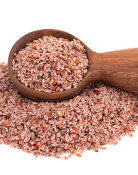Prices. exchange rates first need to be under control
Prices. exchange rates first need to be under control
Posted July. 29, 2022 07:56,
Updated July. 29, 2022 07:56
The U.S. Federal Reserve (Fed) made a ‘Giant Step’ for a second month, raising the base rate by 0.75 percentage points, and the inversion of the base rate between Korea and the U.S. has become reality. The U.S. base rate rose to 2.25-2.50 percent, surpassing Korea's 2.25 percent. If this phenomenon continues, the won-dollar exchange rate hike will intensify, leading to higher oil and raw material prices paid in dollars, and the foreign capital flowing out of the nation’s capital market will more likely to occur.
The Korea-U.S. interest rate reversal has occurred the first time in two and a half years since February 2020. Countries that do not have a reserve currency, including Korea, and emerging economies usually keep their interest rates higher than the U.S. to prevent capital outflows. The U.S., where consumer prices soared to the 9 percent range last month, is raising interest rates at a rapid pace to keep prices in check as a priority, despite concerns about an economic recession. Fed Chairman Jerome Powell said that a large-scale rate hike should be in store at the September meeting as well.
Now it is the Bank of Korea (BOK)’s turn, because the base interest rate has become lower than that of the U.S., even though the central bank has taken a ‘Big Step’ by 0.5 percentage points for the first time in history last month. Under these circumstances, it comes down to how much the interest rate will be raised at the BOK’s three remaining Monetary Policy Committee meetings by the end of this year, including the one to be held next month. Considering consumer prices, which are likely to rise to the 7-8 percent range, despite the need to raise interest rates sharply, the worsening consumption contraction and mounting debt of households and small business owners are making the decision ever more difficult. The BOK analysis indicates that private consumption decreased by 1 percent and household interest burden increased by 24 trillion won this year alone, due to the 1.75 percentage point increase in the base rate since August last year.
For this reason, some are voicing opinions on the need to pace the interest rate increases. However, the current situation should not be dealt lightly, with ‘expected inflation’ this month rising to 4.7 percent, the highest since statistics were compiled, which means that there are many consumers who predict a larger price increase in the future. Just like the U.S., which is committed to keeping inflation under control at any cost, Korea also needs bold increase of interest rate, which can change the perception of consumers.
In addition, the longer the interest rate inversion between the two countries, the greater the risk of capital outflow. Increasing interest rates by the BOK is even more inevitable, as import and raw material prices raised by the high exchange rates are leading to the deterioration of corporate earnings and trade balances. The government should proactively come up with measures to alleviate the difficulties of households and businesses, that are experiencing increased interest burden, while at the same time managing the debt issues so that they will not trigger a larger-scale crisis in the financial sector.
Headline News
- N. Korea redefines S. Korea as ‘hostile state’ in revised constitution
- Samsung develops graphic DRAM with industry-leading capacity and speed
- Three questions allegedly leaked via text message during Yonsei Univ. essay test
- China to inject 340 trillion won in loans to support real estate sector
- Dodgers beat Mets to take 2-1 lead in NLCS







